In a world increasingly aware of the challenges posed by climate change, the role of lawyers has gained newfound significance. The Law and Climate Change Summit 2024, a one-day hybrid event arranged by Climate Change Counsel and JP Infonet, recently brought together legal professionals and experts from diverse backgrounds to explore the intricate relationship between law and the environment. Here are some of the key insights from this dynamic gathering.
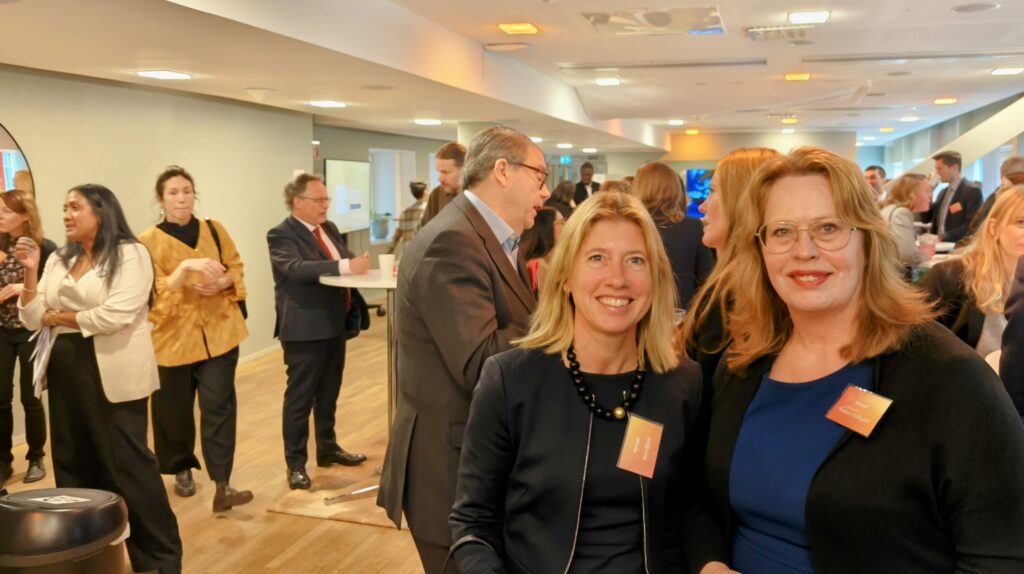
Focus on Climate Transition:
This summit centered on the climate transition in a world increasingly focused on climate change and sustainability. It showcase how the transition also affects legal practitioners, with examples ranging from advising clients on green initiatives to navigating complex regulatory landscapes. Furthermore, it illustrated how lawyers can play a pivotal role in driving climate action.
Taking a Helicopter Perspective:
Given the many challenges surrounding climate change, the summit offered a “helicopter perspective” — an expansive view that transcends traditional boundaries. Speakers and attendees alike were encouraged to step back and examine the broader implications of their work. By adopting this holistic approach, legal professionals can better understand the connections between environmental, social, and economic factors, thus paving the way for more effective solutions.
Impacts on Daily Legal Work:
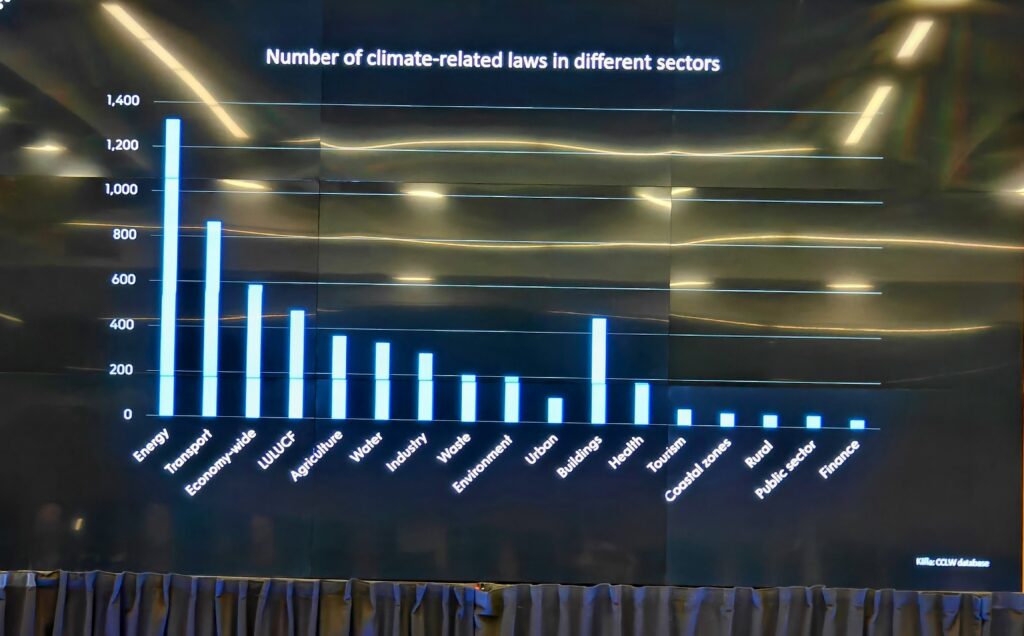
One of the most compelling aspects of the summit was its focus on how climate change directly impacts the daily work of lawyers. From due diligence processes to dispute resolutions, the legal profession is undergoing a transformation in response to environmental concerns. Additionally, there is a noticeable increase in climate-related disputes, signaling the need for lawyers to adapt their practices to this new reality.
Keynote Insights:

Among the distinguished speakers was Johan Kuylenstierna, Director General at Formas – A Research Council for Sustainable Development. In his keynote address, Kuylenstierna emphasized the transformative potential of
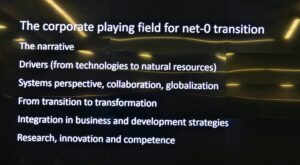
climate action for business development. He highlighted a shift in mindset from viewing climate change as a burden to recognizing it as a catalyst for innovation and growth. Technological advancements, such as the use of solar energy, have exceeded all predictions. As the corporate sector increasingly embraces sustainability, lawyers must rise to the challenge of providing legal frameworks that support and accelerate this transition.
Sustainable Due Diligence:

David Frydlinger, Partner at Cirio, offered valuable insights into how the due diligence principle should adapt. By integrating sustainability considerations into policies and risk management systems, businesses can mitigate adverse impacts and foster a culture of accountability. Frydlinger outlined the EU’s vision for sustainable business, highlighting the importance of purpose-driven companies with clear strategies for generating positive environmental and social outcomes.
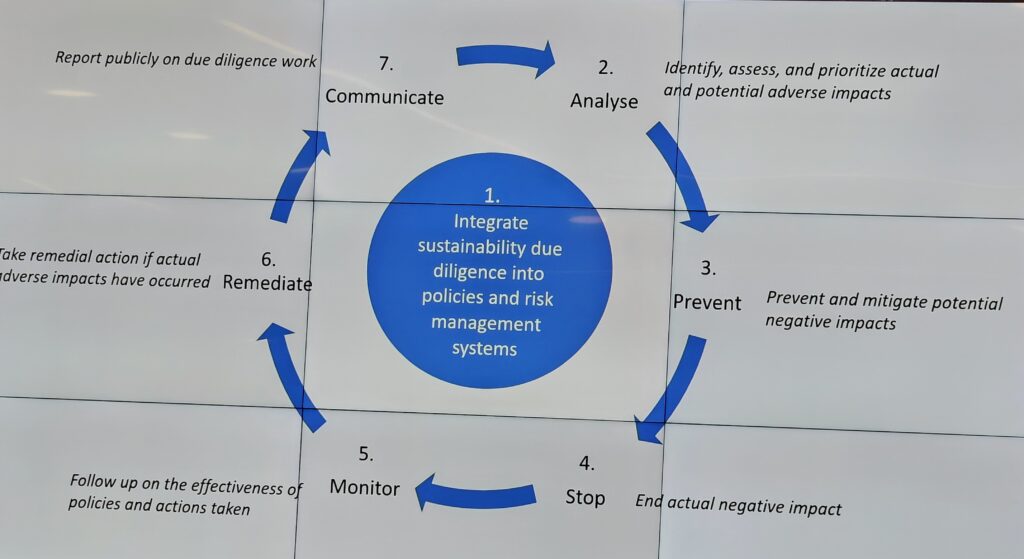
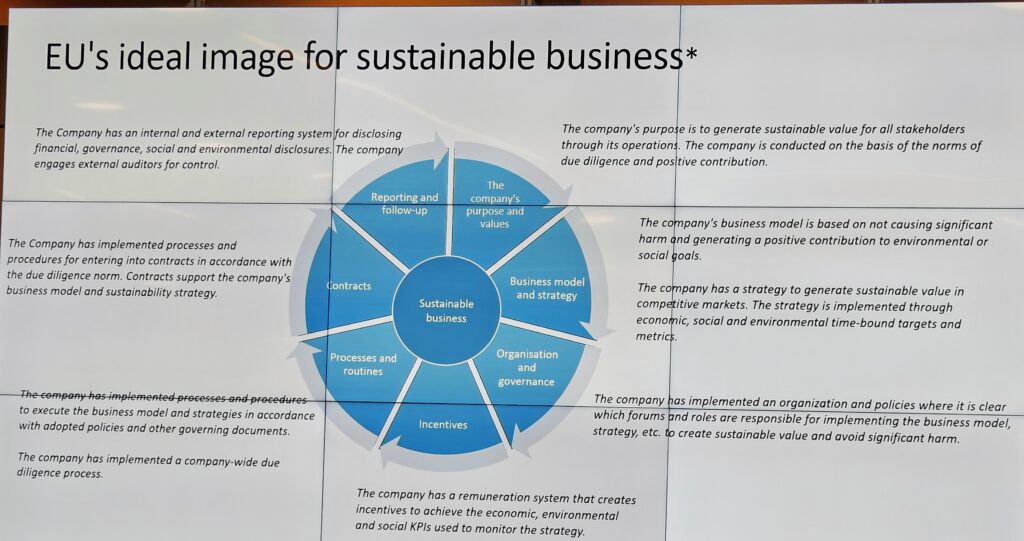
Panel Discussion: Climate-Conscious Lawyering:
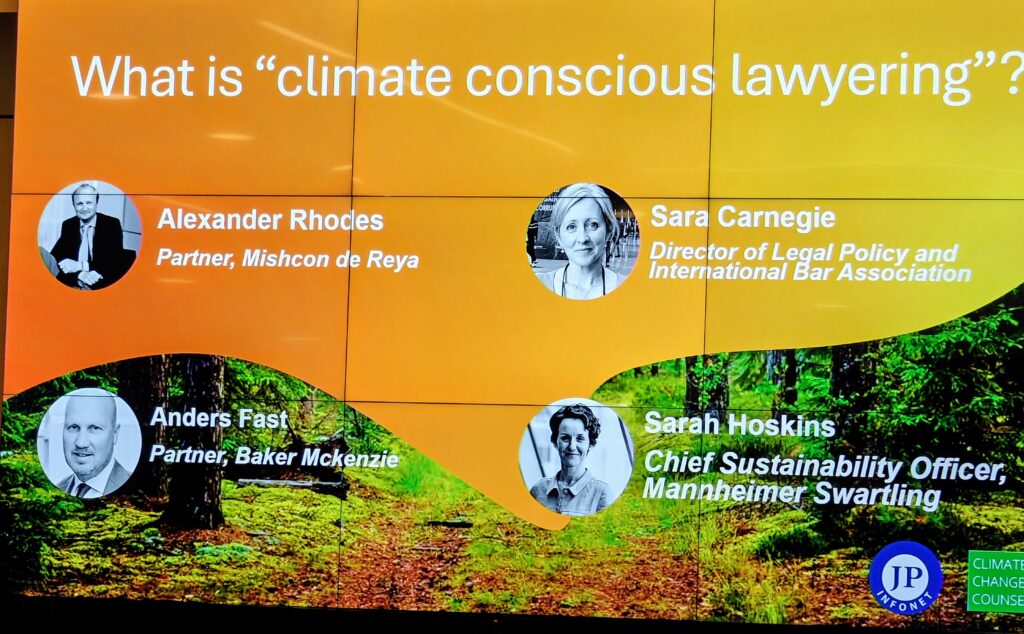
A thought-provoking panel discussion on “Climate-Conscious Lawyering” challenged participants to rethink their roles in addressing climate change. Instead of leaving the field to climate law experts, the panel advocated for becoming climate-competent lawyers who actively seek out opportunities for positive impact. By embracing continuous learning and collaboration, legal professionals can leverage their expertise to drive meaningful change.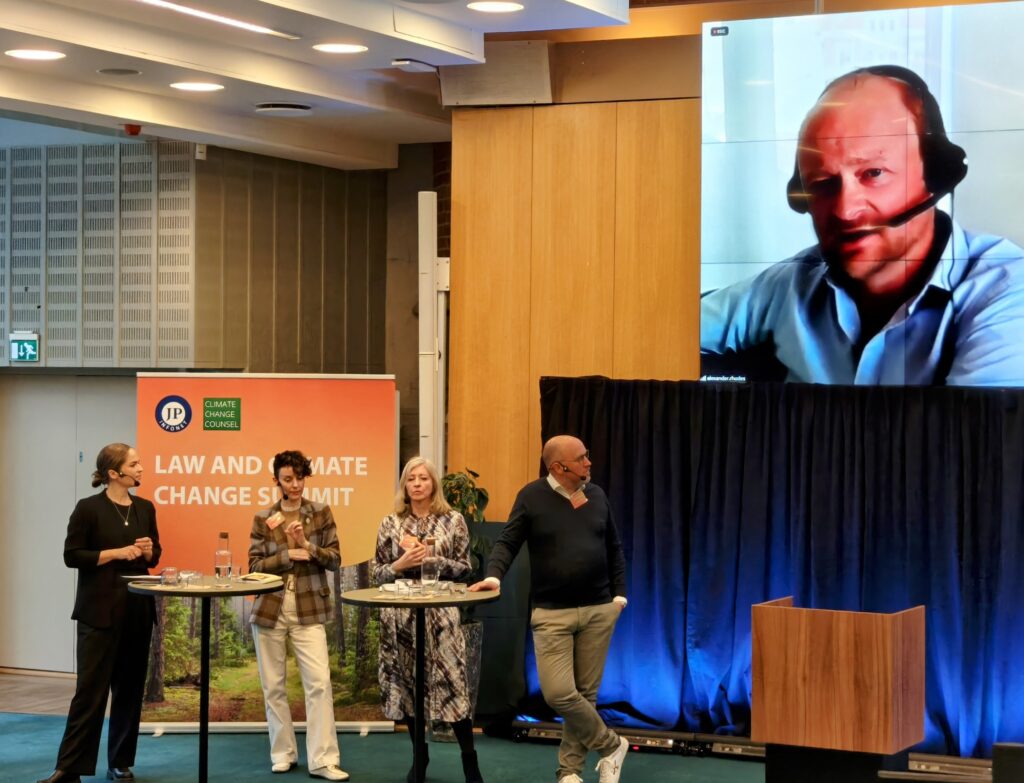
In conclusion, the Law and Climate Change Summit 2024 provided a comprehensive overview of the evolving role of lawyers in the era of environmental change. By harnessing their expertise and creativity, legal practitioners have the power to shape a more sustainable future for generations to come and become climate-conscious lawyers.

